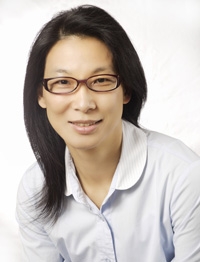Teresa H. Meng
- Associated organizations
- Stanford University
- Fields of study
- Signal processing
- Awards
- IEEE Alexander Graham Bell Medal History
Innovator of the Year in 2002
CIO 20/20 Vision Award in 2002
DEMO@15 World-Class Innovator Award in 2005
2008 Pederson Award
NSF Presidential Young Investigator Award
ONR Young Investigator Award
IBM Faculty Development Award
Bosch Faculty Scholar Award
Best Paper Award
Distinguished Lecturer Award from the IEEE Signal Processing Society
Eli Jury Award from U.C. Berkeley
Biography
An engineer, scholar and entrepreneur who saw the potential for combining digital signal processing (DSP) and radio-frequency (RF) circuitry on a single chip, Teresa H. Meng enabled the wireless freedom needed for universal personalized network access through wireless communications. Dr. Meng’s strategy of integrating DSP and RF in standard CMOS technology has become the basis of today’s lower-cost, lower-power and higher-performing wireless systems.
In 1999, while on leave from Stanford University, Dr. Meng founded Atheros Communications to produce high-volume, inexpensive integrated chips for wireless local area network (WLAN) applications, enabling WLANs to move from specialized to widespread use, such as in office and home environments. After returning to Stanford in 2001, Dr. Meng has focused her research efforts on bio-implant technologies, neural prosthetics and noninvasive medical treatments using focused EM energy. She returned to Stanford in 2000 to continue her teaching and turned her research to applying signal processing and IC design to bio-medical engineering. Professor Meng retired from Stanford in 2013.
She received her M.S. and Ph.D. in EECS from the University of California at Berkeley and her B.S. from National Taiwan University. Dr. Meng is an IEEE Fellow, a member of the National Academy of Engineering and currently the Reid Weaver Dennis Professor of Electrical Engineering at Stanford University, Stanford, California.
